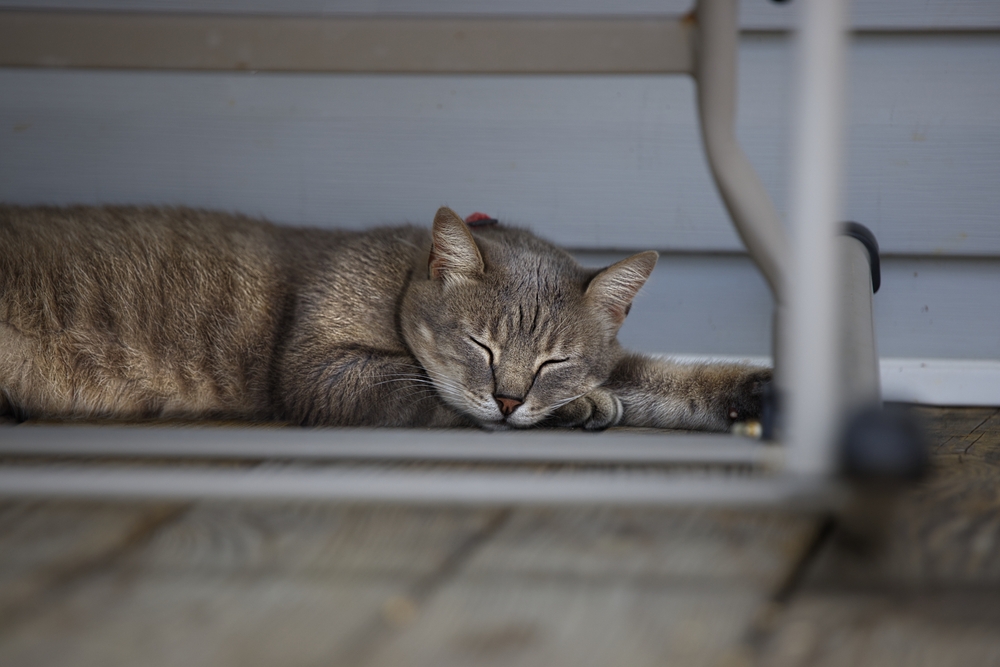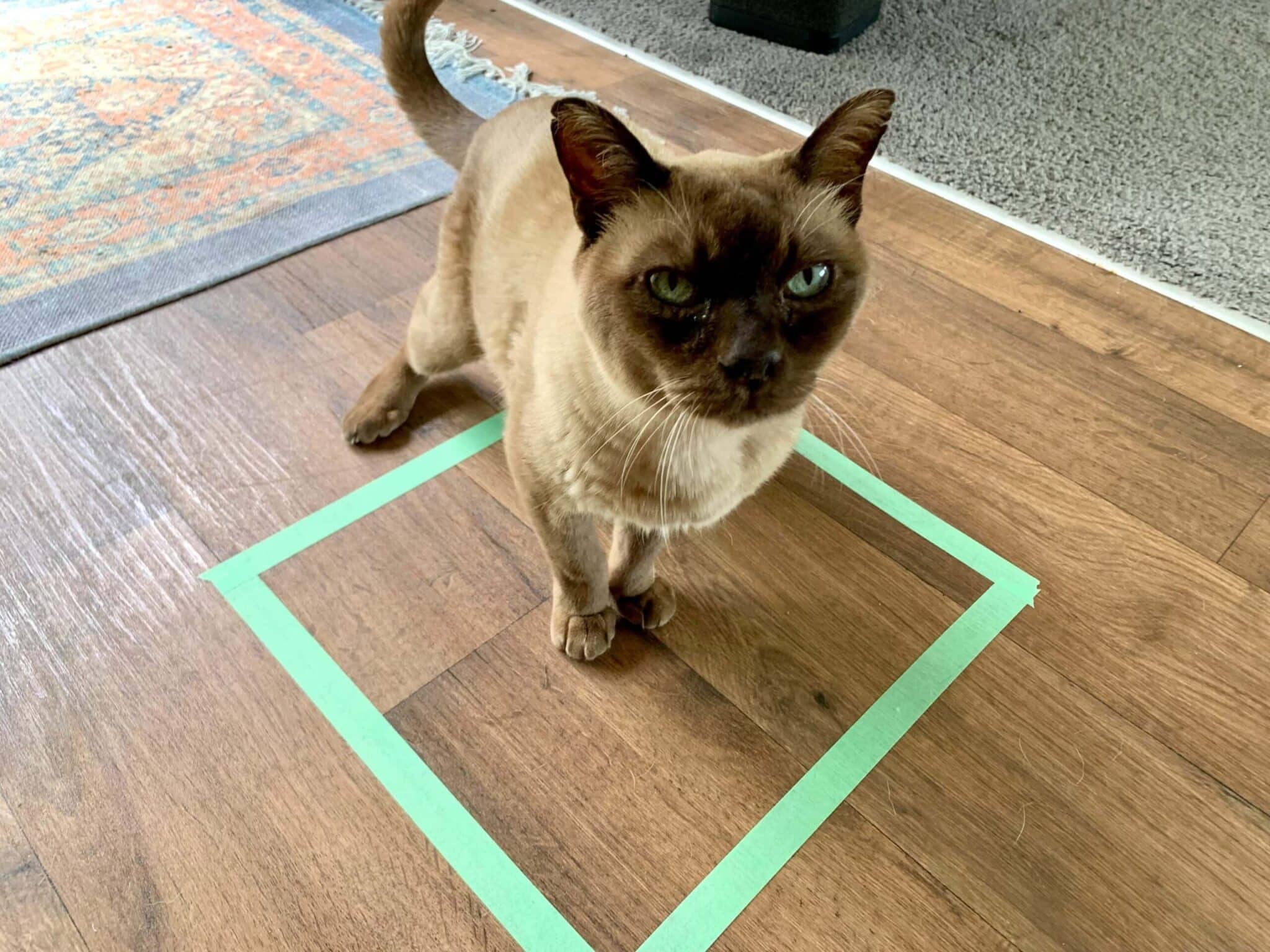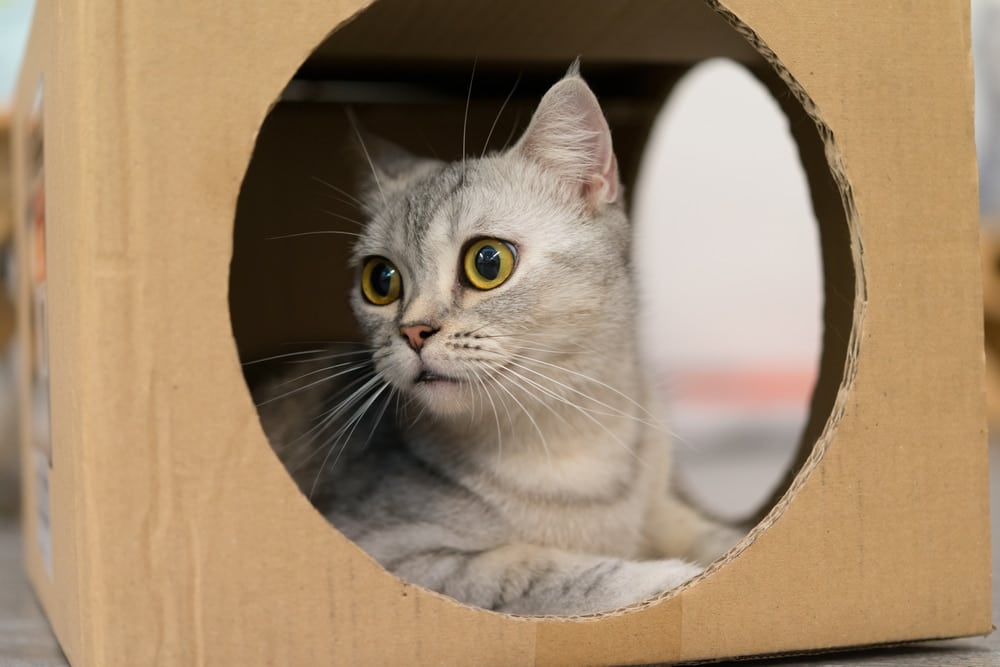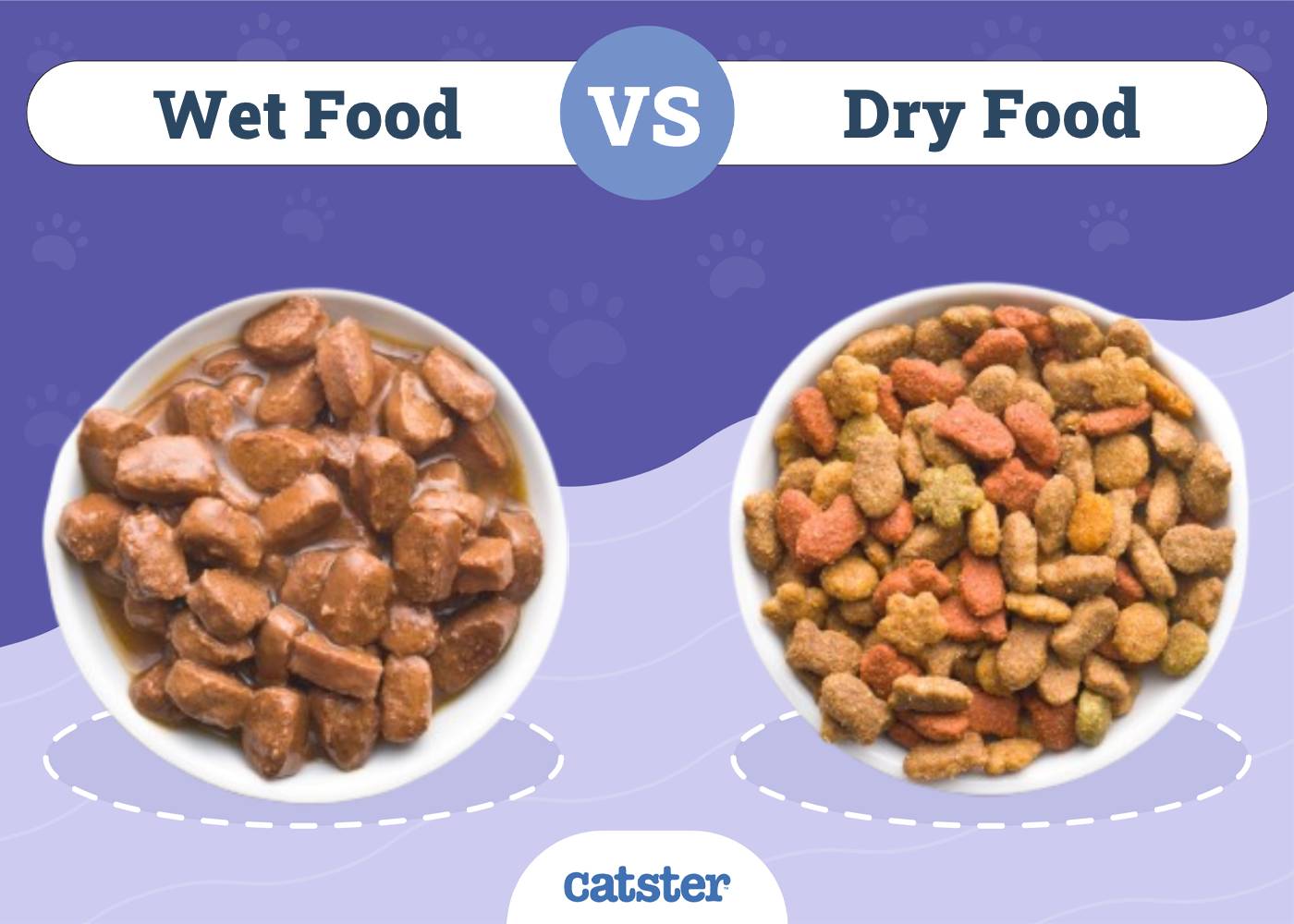Is there anything sweeter than seeing a cat curled up in a cozy nook, purring in their sleep? We can’t think of much that beats it. But if you’ve ever wondered why cats purr in their sleep—and if they’re really as happy as they seem—we’re here to reassure you. Cats who purr in their sleep are usually relaxed and content and are generally snoozing or napping. If you want to learn more about why and how cats purr—and other reasons they might purr while dozing off to sleep—keep reading!
 Purring and Relaxation
Purring and Relaxation
What even is purring? When cats purr, they do it continuously, whether they’re breathing in or out. That’s because purring is caused by a vibrating larynx or voice box. The muscles that make up the larynx expand and contract very quickly, creating a constant hum that varies from cat to cat.1 Although we don’t know all the reasons why cats purr, we know that it is good for them. It is also really good for us—the sound of a cat purring can induce relaxation and have a positive impact on our body and mind.
Scientists now believe that purring, like meowing and hissing, is a passive phenomenon that plays out automatically after cats’ brains provide the initial signal to purr, but it can also occur independently of the brain, without its input.2 This usually happens when the cat is relaxed and content. That’s true when they’re preparing for sleep, too, or if they get woken up by their human from a snooze! Your cat likes to sleep in places where they feel safe and relaxed. This might be a cozy nook or right next to a trusted human like you. Settling down to rest somewhere relaxing sometimes triggers the purring, even if your cat is drowsy and not entirely aware of their own purring.
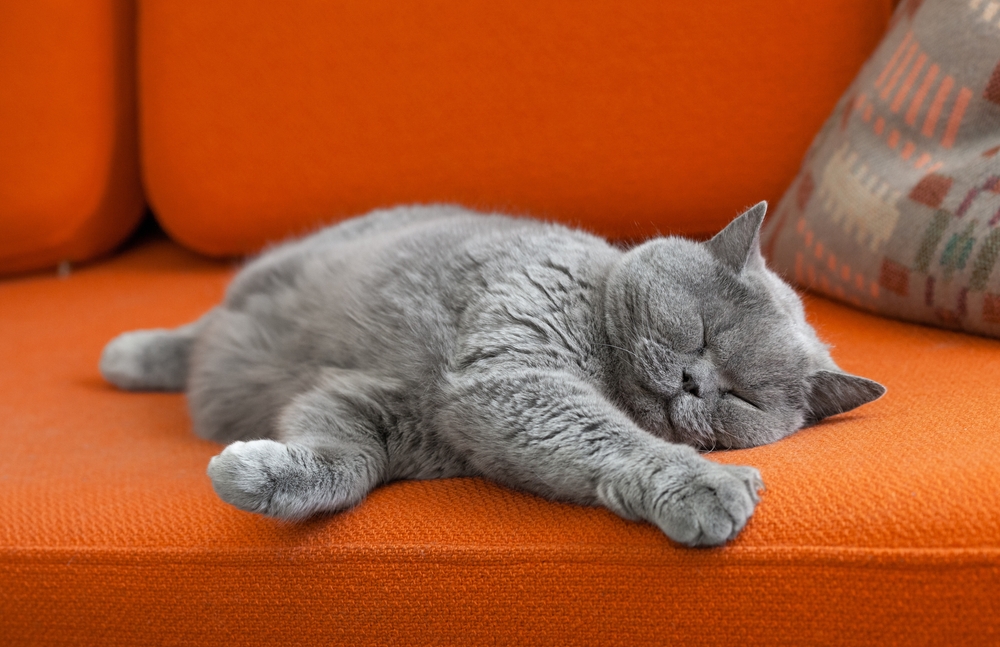
How Is Purring Related to Sleep
Although cats usually purr for happy reasons, that’s not always true. Cats can also have paradoxical purrs during times of stress, pain, fear, or sickness. These purrs might be a way to help your cat calm down or soothe themselves. There’s also evidence that purring can actually help your cat heal from some injuries. This means that if you see your cat purring as they’re trying to snooze, combined with other signs of stress, pain or illness, everything might not be perfect. Although purring because of injury or anxiety is less common, it’s still worth knowing about. If there is any doubt about your cat’s health, and they don’t seem quite right, it’s important to get them checked by your vet as soon as possible.
Another reason for purring may be dozing off into the first stage of non-REM or light slow-wave sleep. At this stage cats can still be easily woken up and they are aware of their surroundings. Afterwards they enter deep slow-wave sleep, where they are less responsive to outside stimulus, followed by REM, which does not occur in every stage. During the Rapid Eye Movement (or REM) stage of sleep, cats experience vivid dreams, just like we do. You might see your cat make small movements or twitches, of their face, paws or tail.
Other Reasons for Purring
Although cats usually purr for happy reasons, that’s not always true. Cats can also have paradoxical purrs during times of stress, pain, fear, or sickness. These purrs might be a way to help your cat calm down or soothe themselves. There’s also evidence that purring can actually help your cat heal from some injuries. This means that if you see your cat purring as they’re trying to snooze, combined with other signs of stress, pain or illness, everything might not be perfect. Although purring because of injury or anxiety is less common, it’s still worth knowing about. If there is any doubt about your cat’s health, and they don’t seem quite right, it’s important to get them checked by your vet as soon as possible.
Purring vs Snoring
Finally, if your cat’s light sleep purrs sound different from their waking purrs, your cat might actually be snoring. This usually happens when your cat is sleeping deeply and is more common in cats with allergies, flat faces, or overweight cats. If your cat has always snored, it’s likely not a big deal. But if you notice that your cat has suddenly started, it might be a sign of asthma, allergies, or other respiratory issues. Look out for other signs of illness in case a vet visit is needed.

Last Thoughts
As you can see, snoozing and purring can go hand in hand. There are a few reasons why your cat might purr, such as when they are preparing for sleep and rest. Cats can also purr because they are scared, in pain or injured, but that is not as often as when they are relaxed. Your kitty is probably feeling happy and content, whether they are resting or dozing. Feel free to sit back and enjoy the soft, musical sound.
Featured Image Credit: Cheryl Ann Studio, Shutterstock

